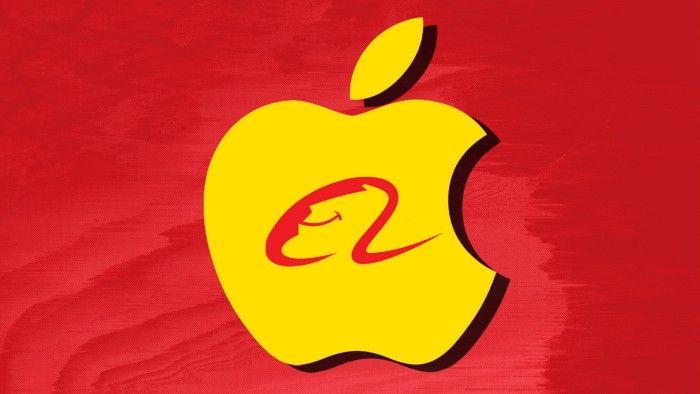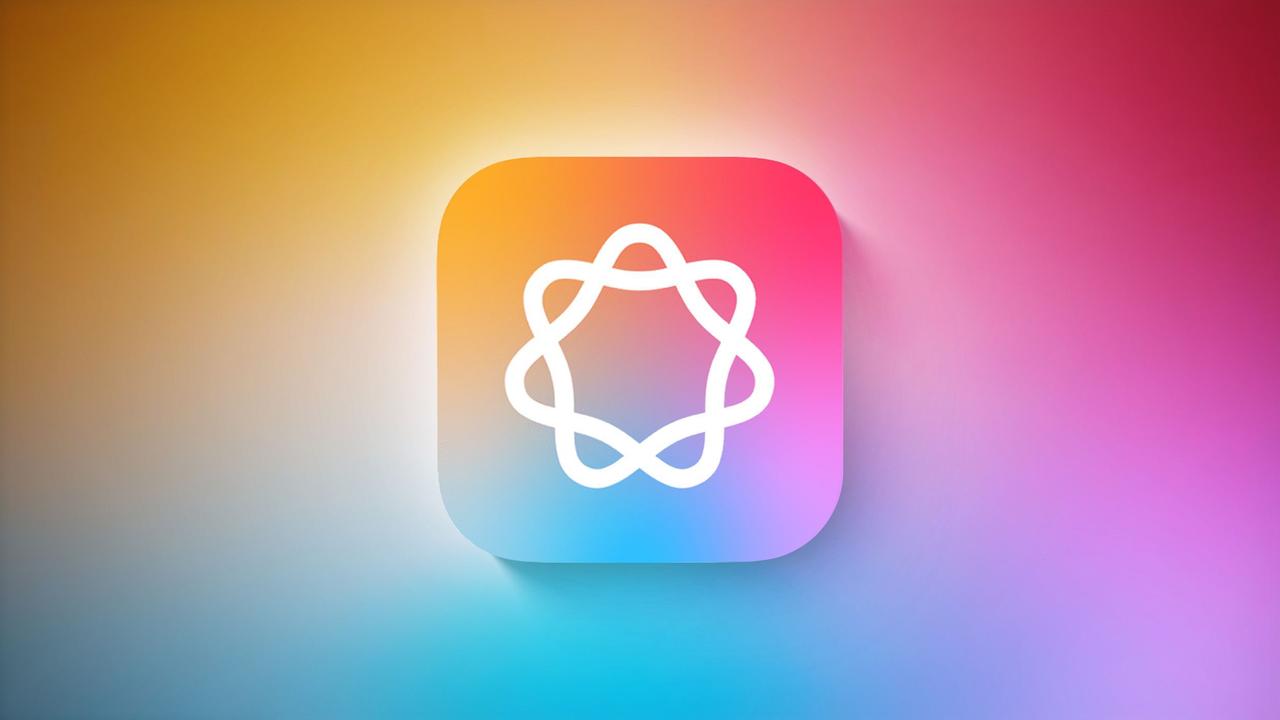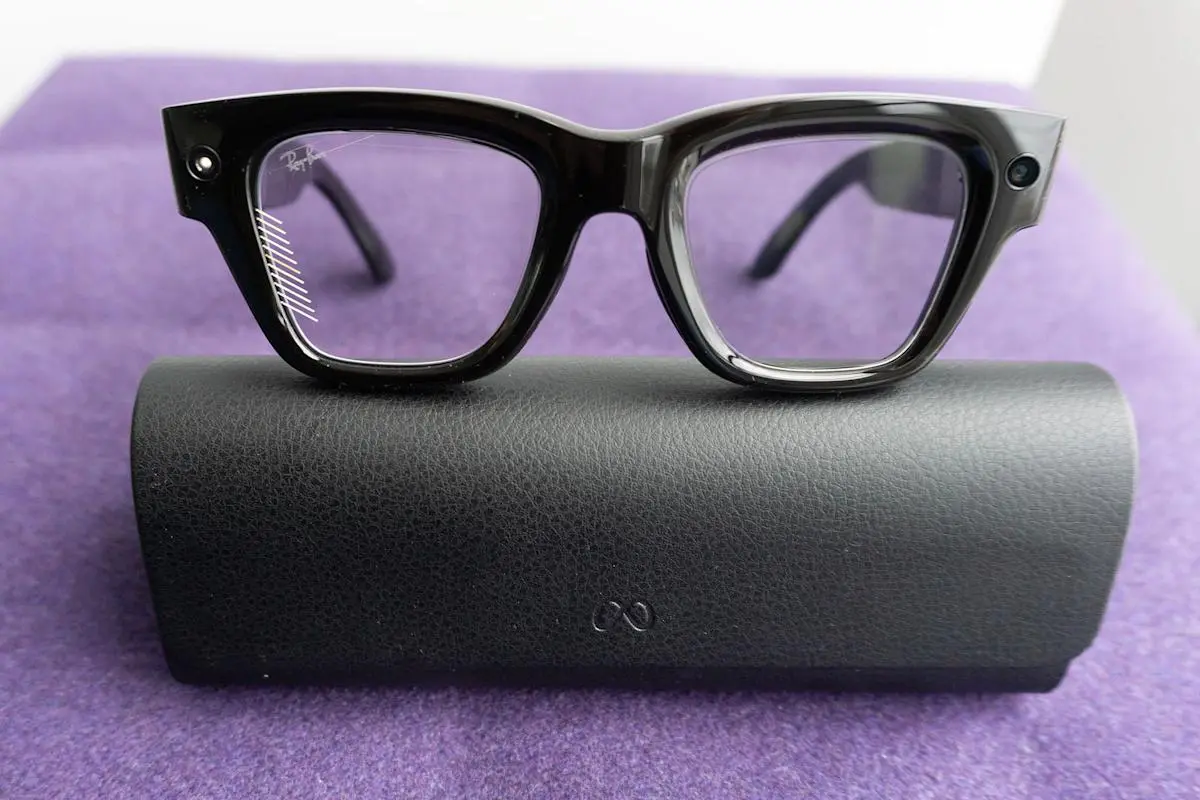Apple Intelligence Rollout in China Stalled Amid US-China Trade Tensions
7 Sources
7 Sources
[1]
Apple and Alibaba's AI rollout in China delayed by Trump's trade war, FT reports
June 4 (Reuters) - Apple (AAPL.O), opens new tab and Alibaba's (9988.HK), opens new tab rollout of artificial intelligence services in China is being delayed by a Beijing regulator, the Financial Times reported on Wednesday. The tech companies in February announced a deal to support iPhones' AI services offering in China, a move likely to help the U.S. company ease falling smartphone sales in its key market. But their applications have been stalled at the Cyberspace Administration of China (CAC), FT reported, citing two people familiar with the matter said, due to increasing geopolitical uncertainties between China and the U.S. Apple and Alibaba did not immediately respond to Reuters requests for comment. Reporting by Juby Babu in Mexico City; Editing by Shailesh Kuber Our Standards: The Thomson Reuters Trust Principles., opens new tab Suggested Topics:China
[2]
Apple and Alibaba's AI rollout in China delayed by Donald Trump's trade war
Apple's rollout of artificial intelligence services in China with Alibaba is being held up by a Beijing regulator, as the tech partnership becomes the latest casualty of Donald Trump's trade war. The tech giants have been working together to launch Apple Intelligence, the iPhone-maker's suite of AI services, for Chinese users. The system would be supported by Alibaba's latest models. Multiple AI products co-developed by the tech companies have been submitted this year to China's internet authority for approval. But their applications are stalled at the Cyberspace Administration of China (CAC), two people familiar with the matter said, citing increasing geopolitical uncertainties between China and the US. Apple has suffered in particular from growing tensions between Washington and Beijing, despite chief executive Tim Cook's efforts to win favour with the White House ahead of Trump's second term. The US president has pressured Apple, whose growth into one of the world's most valuable companies has been propelled by its manufacturing operation in China, to bring production back to the US. Last month, Trump threatened Apple and Samsung with 25 per cent tariffs on their devices unless the companies reshored their manufacturing. Apple's stock price has also been hit this year over its slow global rollout of AI features, which the company has touted as a key selling point for its latest iPhone models, as well as regulatory and legal action that threatens its high-margin services business. Delays to the release of Apple Intelligence in China are also handicapping the US company as it faces increasing competition from Chinese rivals led by Huawei, Xiaomi, Oppo and Vivo. The delay to Apple and Alibaba's partnership comes as the US and China, the world's two biggest economies, are engaged in negotiations to reduce tit-for-tat tariffs that had soared as high as 145 per cent. The CAC approval process, which typically involves official testing of AI models, is required for all companies seeking to offer generative AI services to the public in China. CAC has approved more than 300 domestic AI models for use so far. Despite Apple partnering with Alibaba in a bid to win CAC approval, the high-profile relationship has still attracted regulatory scrutiny as trade tensions with the US have escalated. Beijing has also been seeking leverage in trade talks by reviving investigations into US tech giants such as Nvidia and Google. One person with knowledge of the Apple-Alibaba partnership said it now took longer for Beijing to review any US-related deals or partnerships, especially in critical areas such as AI. Final approval needs to be cleared by the higher body of the State Council, which is also engaged in US-China trade negotiations. But the person added that all such delays were subject to change and applications could be vetted quickly once the State Council gave its approval. The US commerce department's Bureau of Industry and Security has also expressed concerns about the partnership to Apple and Alibaba, according to another person familiar with the discussions, although it does not have a legal means to block it. Alibaba chair Joe Tsai said in February that the company would provide technology for Apple's AI-capable iPhone models sold in China, confirming reports of a partnership that had fuelled a rally in the Chinese group's shares. Meanwhile, Apple's market share has been falling in China. At the start of 2023, Apple had a 70 per cent share of China's high-end smartphone market, while Huawei was at 13 per cent, according to the International Data Corporation. By the first quarter of this year, Apple's share had slipped to 47 per cent, while Huawei stood at 35 per cent. Apple declined to comment. Alibaba, CAC and the Chinese State Council did not respond to requests for comment.
[3]
Report: China is forcing Apple Intelligence delays as trade war leverage
Apple Intelligence is available in almost every part of the world, with China the lone exception. But it's not for lack of effort on Apple's part. According to a new report, it seems that Chinese regulatory holdups are behind the ongoing AI delays. Zijing Wu, Cheng Leng, and Michael Acton write at Financial Times: Apple's rollout of artificial intelligence services in China with Alibaba is being held up by a Beijing regulator, as the tech partnership becomes the latest casualty of Donald Trump's trade war. The tech giants have been working together to launch Apple Intelligence, the iPhone-maker's suite of AI services, for Chinese users. The system would be supported by Alibaba's latest models. Multiple AI products co-developed by the tech companies have been submitted this year to China's internet authority for approval. But their applications are stalled at the Cyberspace Administration of China (CAC), two people familiar with the matter said, citing increasing geopolitical uncertainties between China and the US. The rest of the piece outlines how the current US-China trade war seems central to the delays. Due to local AI requirements in China, Apple has already had to partner with the China-based Alibaba for collaboration on its AI models. This necessity is no doubt behind Apple being unable to ship its AI features as soon as it wanted in China, where iPhone sales have seemed to take a hit in the face of stiff competition. But now, thanks to the ongoing economic uncertainty and desire for trade leverage, it seems Apple Intelligence may be absent in the country in the near-term until trade issues are resolved. Do you think Apple Intelligence's absence in China will continue hurting iPhone sales? Let us know in the comments.
[4]
iOS 18.6 Apple Intelligence Launch in China Delayed by U.S.-China Trade Tensions
Apple's efforts to bring Apple Intelligence to the critical Chinese market have been stymied by tension resulting from the tariffs that U.S. President Donald Trump put in place, reports Financial Times. To deploy Apple Intelligence features in China, Apple is working with Alibaba, and the two companies have not yet received regulatory approval in China for the AI products that Apple wants to debut. China's Cyberspace Administration (CAC) must test and approve all AI models before companies can roll out AI services in China, and that's where the process has stalled. CAC is delaying application approval due to "increasing political uncertainties" between the United States and China. Trump significantly increased tariffs on goods imported from China back in April, and fees reached 145 percent. Apple was exempted from some of the tariffs and the tariffs were later paused for 90 days, but the trade war has been escalating in recent days as the U.S. and China have failed to reach a deal. Earlier this week, China said that the U.S. had "severely violated" a trade agreement that had been reached at a Geneva meeting in May by limiting sales of jet engine and semiconductor design software to Chinese companies, controlling chip exports, and canceling Visas for Chinese students. Trump claimed that China violated the deal by refusing to roll back some tariffs and restrictions for critical minerals needed for chip production, and he announced plans to raise tariffs on steel back to 50 percent on June 4. Earlier today, he further said that President Xi is "very tough" and "extremely hard to make a deal with." Chinese regulations prevent Apple from using its own AI technology for Apple Intelligence, so Apple is planning to use models developed by Alibaba. Because of the restrictions, Apple has faced delays expanding Apple Intelligence to China, which is a key market. Chinese smartphone manufacturers like Huawei and Xiaomi have a suite of AI features available for customers, which puts Apple far behind in the AI race in the country. The Trump administration is "considering" putting Alibaba, Tencent, and Baidu on an entity list that would prevent them from engaging in trade with the United States, according to The New York Times. If that happens, Apple will face further issues trying to bring Apple Intelligence to China. The U.S. Bureau of Industry and Security has raised concerns about Apple's plans to partner with Alibaba as well. Rumors suggest that Apple plans to debut Apple Intelligence in China in an iOS 18.6 update, but it is not clear if that is still going to happen nor do we know when we might get iOS 18.6 due to the approval delays. It has been three weeks since the launch of iOS 18.5, and Apple's beta updates usually come just a few days after a software release.
[5]
Trump trade war delays Apple Intelligence's debut in China | AppleInsider
Apple Intelligence still isn't available in China, and won't be for some time Apple's eventual rollout of Apple Intelligence in China has hit delays, thanks to regulatory issues raised in response to President Trump's tariffs. Apple has been working with Alibaba to bring its Apple Intelligence suite of generative AI features to iPhones in China. While the two tech giants have worked together on the project, it has hit a roadblock that has forced a delay in its introduction. According to a report on Wednesday morning by the Financial Times, applications from Apple and Alibaba to release the AI features have not gained the approval of the Cyberspace Administration of China. The regulatory rubber stamp is required in China by law, which prevents Apple from adding them to iOS. Two sources of the report say that the blockage is due to the increasing tensions between China and the United States. By this, the main reason is said to be the trade war and tariff activity instigated by the current administration of President Donald Trump. To Apple, the block could be an expensive exercise, since the introduction of the features could help revive sales in the country. With other smartphones and devices already on the market with their own AI features, the gulf in AI technology could widen as the regulators hold off from approving Apple's proposals.
[6]
Apple and Alibaba's AI rollout in China delayed by Trump's trade war: Report
The tech companies in February announced a deal to support iPhones' AI services offering in China, a move likely to help the US company ease falling smartphone sales in its key market.Apple and Alibaba's rollout of artificial intelligence services in China is being delayed by a Beijing regulator, the Financial Times reported on Wednesday, as the partnership becomes the latest to take a hit due to US President Donald Trump's trade war. The tech companies in February announced a deal to support iPhones' AI services offering in China, a move likely to help the US company ease falling smartphone sales in its key market. But their applications have been stalled at the Cyberspace Administration of China (CAC), FT reported, citing two people familiar with the matter, due to increasing geopolitical uncertainties between China and the US. AI features are especially important in China and consumer-facing AI products require regulatory approval. Apple and Alibaba did not immediately respond to Reuters requests for comment, while the CAC could not immediately be reached. A delay in the rollout of the features could prove costly for Apple, which is facing declining iPhone sales in China amid growing competition from domestic rivals, particularly Huawei, which has integrated DeepSeek's AI models into its cloud services and devices. Industry analysts have pointed to the absence of advanced AI features - a key selling point in latest-generation smartphones - as a significant disadvantage for Apple in the Chinese market. The iPhone maker has also been slow in rolling out Apple Intelligence, a set of features with access to ChatGPT, with several advanced AI tools available on competing Android smartphones. Trump in late May said that Apple would pay a 25% tariff on iPhones that are sold in the United States but not made in the country. Apple will hold its Worldwide Developers Conference (WWDC) from June 9 to 13, and it will highlight updates to the software powering iPhones, iPads and other Apple devices.
[7]
Apple and Alibaba's AI rollout in China delayed by Trump's trade war, FT reports
(Reuters) -Apple and Alibaba's rollout of artificial intelligence services in China is being delayed by a Beijing regulator, the Financial Times reported on Wednesday. The tech companies in February announced a deal to support iPhones' AI services offering in China, a move likely to help the U.S. company ease falling smartphone sales in its key market. But their applications have been stalled at the Cyberspace Administration of China (CAC), FT reported, citing two people familiar with the matter said, due to increasing geopolitical uncertainties between China and the U.S. Apple and Alibaba did not immediately respond to Reuters requests for comment. (Reporting by Juby Babu in Mexico City; Editing by Shailesh Kuber)
Share
Share
Copy Link
Apple's partnership with Alibaba to launch AI services in China faces regulatory hurdles due to escalating trade war between the US and China, potentially impacting iPhone sales in a key market.
Apple's AI Ambitions in China Hit Regulatory Roadblock
Apple's plans to introduce its artificial intelligence services, known as Apple Intelligence, in the Chinese market have encountered a significant setback. The tech giant's partnership with Alibaba, aimed at launching AI-powered features for iPhones in China, is facing delays due to regulatory hurdles amid escalating trade tensions between the United States and China
1
.
Source: FT
Regulatory Challenges and Geopolitical Uncertainties
The Cyberspace Administration of China (CAC), the country's internet regulator, has stalled the approval process for AI products co-developed by Apple and Alibaba. This delay is attributed to increasing geopolitical uncertainties between China and the US, particularly in light of the ongoing trade war
2
. The CAC approval process, which typically involves official testing of AI models, is mandatory for all companies seeking to offer generative AI services to the public in China.Impact on Apple's Market Position
The delay in launching Apple Intelligence in China could potentially harm Apple's competitive position in a crucial market. Chinese smartphone manufacturers like Huawei, Xiaomi, Oppo, and Vivo already offer AI features to their customers, putting Apple at a disadvantage
3
. Apple's market share in China's high-end smartphone market has already seen a decline, dropping from 70% at the start of 2023 to 47% in the first quarter of 2025, while Huawei's share has risen from 13% to 35% during the same period2
.Trade War Implications
The delay is seen as a direct consequence of the trade war initiated by US President Donald Trump. Recent developments have seen tariffs on Chinese goods reach as high as 145%, although they were later paused for 90 days
4
. The situation has further escalated with China accusing the US of violating a trade agreement reached in May, and Trump threatening to raise tariffs on steel back to 50%4
.
Source: MacRumors
Related Stories
Apple's Strategy and Future Prospects
To comply with Chinese regulations, Apple has partnered with Alibaba to use their AI models for the Apple Intelligence suite in China. This collaboration was announced in February 2025 and was initially seen as a strategic move to help Apple ease falling smartphone sales in the Chinese market
1
.However, the partnership has attracted additional scrutiny from both Chinese and US authorities. The US Bureau of Industry and Security has expressed concerns about the collaboration, although it lacks legal means to block it
2
. Meanwhile, there are reports that the Trump administration is considering placing Alibaba, along with other Chinese tech giants, on an entity list that would prevent them from engaging in trade with the United States4
.Uncertain Timeline for Launch

Source: ET
While Apple had initially planned to introduce Apple Intelligence in China with an iOS 18.6 update, the timeline for this release is now uncertain due to the ongoing approval delays
4
. The situation remains fluid, with the potential for quick approval if geopolitical tensions ease and the Chinese State Council gives its go-ahead5
.References
Summarized by
Navi
Related Stories
Apple Partners with Alibaba to Bring Adapted AI Features to iPhones in China
12 Feb 2025•Technology

Apple Faces Regulatory Hurdles for AI Launch in China, Considers Local Partnerships
26 Nov 2024•Business and Economy

U.S. Government Scrutinizes Apple-Alibaba AI Deal for iPhones in China
17 May 2025•Policy and Regulation

Recent Highlights
1
OpenAI secures $110 billion funding round from Amazon, Nvidia, and SoftBank at $730B valuation
Business and Economy

2
Trump orders federal agencies to ban Anthropic after Pentagon dispute over AI surveillance
Policy and Regulation

3
Google releases Nano Banana 2 AI image model with Pro quality at Flash speed
Technology





